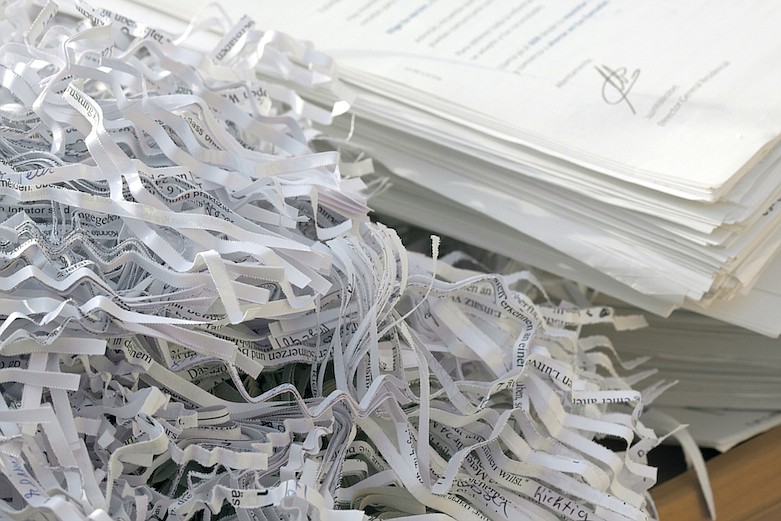I know you've written about identity theft in the past, but I'm still not sure what to always shred. – Calvin Cautious
Dear Mr. Cautious: First, I'm delighted you remember how important it is to shred personal information, rather than simply tearing up and trashing it. Don't worry about envelopes or magazines with your address as this is public info and can be easily obtained.
Clearly, you have records you need to keep, such as tax records from the past. (The new mandate is to preserve records for three years from the date you filed your original return or two years from the date you paid the tax, whichever is later. The seven-year directive now applies only to filing a claim for a worthless securities loss or bad debt deduction. For further understanding, check irs.gov "Period of Limitations that apply to income tax returns.").
However, documents you intend to discard and that should be on your must-destroy list are as follows:
* Credit card particulars, which include pre-approved offers and applications, as well as courtesy checks, must be demolished. (Call the issuing companies to stop this flow of unsolicited offers.)
* Monthly bills that contain your account information are vital pieces to be eliminated. They can be used to obtain voter registration cards, which can then help to obtain other forms of (mistaken) ID.
* Financial statements from checking, savings, stocks, etc. that contain the full account numbers should be shredded. Also, dispose of any PIN information.
* Pay stubs or anything pertaining to your workplace, except 1099s and other tax-related paperwork necessary to file a return, must be destroyed.
* Any form of identification to include expired driver's licenses and/or Social Security numbers is essential to be shredded into itsy bitsy fragments.
* Medical forms are also important. Any stolen medical ID number makes you vulnerable to medical ID theft, which I've written about in the past.
* Mail from companies with which you've done business is also a no-no. Too many unscrupulous people could call and pretend to be a rep from that business in order to solicit information from an unsuspecting you.
Furthermore, every smart monitoring agency tells us to think hard before entering both an online and a traditional store. While the following steps aren't necessarily a shredding matter, the information pertains additionally to protecting our identity: It goes without saying to install security software on your computer and to keep it updated automatically.
* Never shop using public wireless connections. You could mistakenly connect to a Wi-Fi crook who's just sitting nearby, waiting to pounce on your personal information.
* Obviously, avoid email scams. As I've advised sixty gazillion times, keep any and all personal info just that – private and personal. No legitimate retailer will ask.
* Make sure the website you're doing business with is reputable. If you're unfamiliar but still want a purchase, research the company by searching for complaints and checking www.bbb.org for any past or present problems. Always pay with a credit card to get the most legal security.
* Remove any "secret" ID from your wallet before getting in the car to travel to the mall. This includes your Social Security card (which you shouldn't be carrying around anyway). Take only the credit card(s) you'll need to make your purchases.
* Speaking of your SS number, it goes without saying to never disclose it or any other personal info unless you initiate the deal. Even then, guard that Social Security info like protecting your first-born.
* To avoid skimming (about which I've written in the past), keep an eagle eye on your cards. Too many salesclerks, waiters, gas station attendants, and the like who disappear with your card to make the transaction may use a hand-held card reader that copies your info that's on the magnetic strip. If this happens, then look out, Baby – the sky's the limit so far as Carlene Crook is concerned!
Contact Ellen Phillips at consumerwatch@timefreepress.com.

